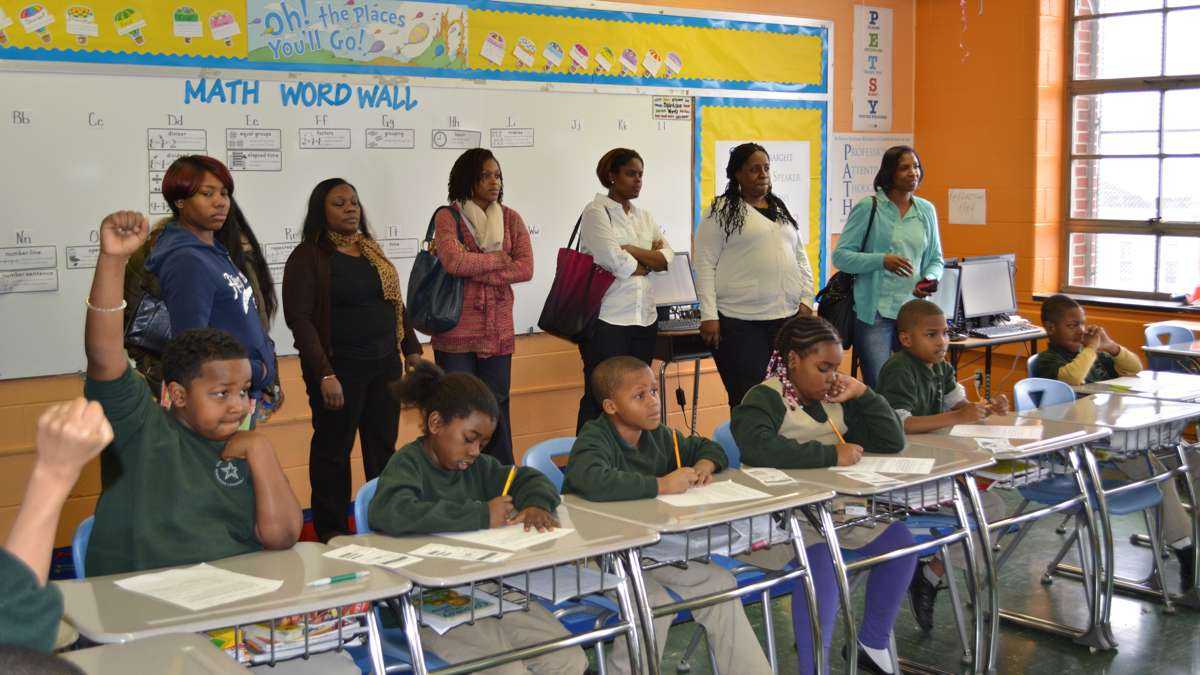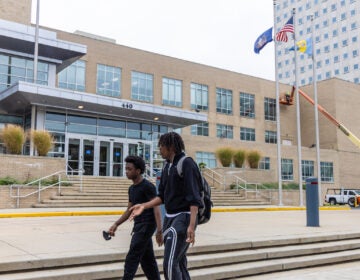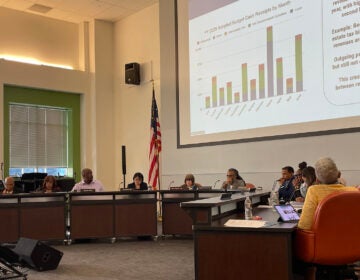Rethinking school turnaround: A familiar story takes a new turn

Parents tour a classroom at Kenderton Elementary. (Kevin McCorry/WHYY
In May, Scholar Academies — a charter management organization — suddenly announced it was abandoning its contract to manage Kenderton Elementary, a struggling school in North Philadelphia. The charter company was expanding in Memphis, Tennessee, and said it could no longer afford its financial commitments here, such as legally mandated special education services.
“They were full of excuses,” an outraged Kenderton parent told WHYY/NewsWorks. “The children are going to be devastated.”
Earlier in the year, I had called for a moratorium on the Renaissance schools program. In what had become an all-too-familiar story, a charter company bailed on or failed a public school under its control, leaving students, parents, and school communities in the lurch.
This time, though, rather than expose Kenderton families to the mercy of the charter market — where charters effectively pick and choose what schools they want to manage — the Philadelphia School District took the unusual step of bringing the school back under District control.
This rethinking of a signature reform effort marks an important step forward in recognizing the limitations of charters and charting a new direction for Philadelphia’s public schools in a turbulent reform period.
For the last six years, the Renaissance charter initiative has been the focus of the District’s reform work. The initiative has transferred control of struggling neighborhood schools — and significant sums of money — to charter operators under five-year contracts. During those five years, there has been little oversight or accountability.
Not surprisingly, at the onset of the program, Renaissance charters were highly desired contracts for charter management organizations (CMOs). For example, Mastery Charter Schools, which operates 14 schools in Philadelphia, quickly became the largest non-cyber CMO in Pennsylvania through this initiative.
But as contracts started to end and the District’s charter office began to review the Renaissance charters’ progress, major concerns came to light. The District’s own research showed mixed academic results, skyrocketing costs — and limited accountability when CMOs went bankrupt or simply chose to quit. Aggressive charter lobbying often put the District and public school communities on the defensive — polarizing staff and families who ought to be pulling together. Renaissance charters also saw a marked drop in the percentage of neighborhood students they served, despite the fact that they were specifically designed for that purpose.
Until this year, the District had limped along with the program. Now, a re-evaluation of the Renaissance initiative may be in the works. District actions at Kenderton show an openness to new thinking — one long advocated by parents and education activists. Rather than see our schools as liabilities, we should take the District’s lead and put together a comprehensive effort to revitalize neighborhood schools — including Renaissance schools like Kenderton that are floundering.
We can start with five priorities.
A clear set of intensive District supports for schools in crisis, which includes a focus on professional development, ongoing training and team-building with teachers and school leadership (including parents)
Serious attention to full and stable staffing from the first day of school on
School-level, district-wide investments focused on climate and students’ well-being—such as lowering class sizes and student-counselor ratios, bringing in social workers, and confronting bullying and harassment in schools
A facilities program that improves the environmental health of schools and provides adequate capital repairs for buildings that are potentially hazardous, expensive to run, and unpleasant for children and staff
A commitment to the success of the Community Schools initiative, which should function as a pilot turnaround program with significant city support and shared partnerships
It’s time to put a hold on expensive experiments like Renaissance charters. The reality is that the standard education reform solutions rarely bring miracles. They usually result in a complex mix of financial challenges, erratic results, shifting demographics, and lingering inequities that exacerbate, and don’t solve, the broader systemic issues of our public schools.
Our students and communities don’t need more disruption. We need a public education system that provides stable staffing and a full curriculum, maintains safe buildings, and supports healthy communities. The School District must forge a new path to help us get there.
The work we do now will establish shared priorities that will shape our public education system for years to come.
—
Helen Gym is the mother of two public school students and is an at-large member of Philadelphia City Council.
WHYY is your source for fact-based, in-depth journalism and information. As a nonprofit organization, we rely on financial support from readers like you. Please give today.




